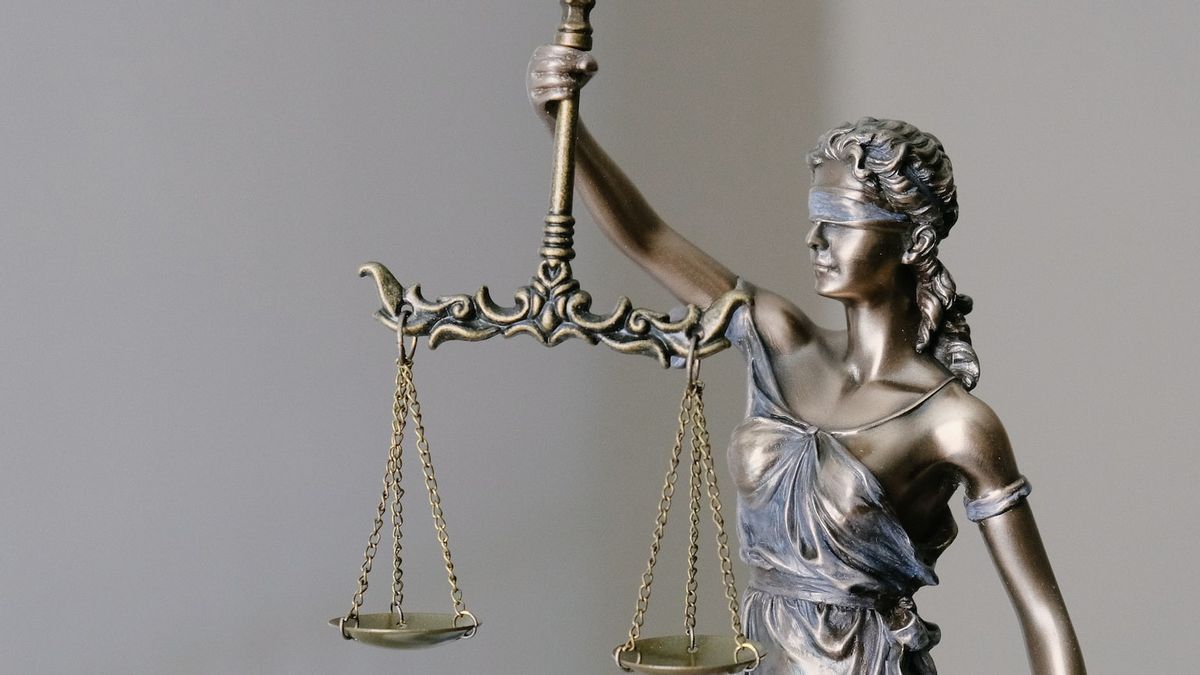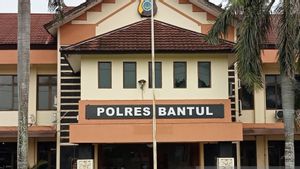YOGYAKARTA - The term pledoi always appears in criminal proceedings. Many are wondering what a pledoi is in the legal dictionary. Pledoi will be delivered by the defendant after the prosecutor's demands in the trial.
Pledoi is an attempt to defend the defendant to defend the truth he believes is based on the evidence revealed in the trial. Pledoi can also be done by his attorney to defend the rights of his client.
The term 'pledoi' comes from the Dutch, namely 'pleiadooi' which means defense. Pledoi was the last defense attempt of the defendant before receiving a verdict from the district court.
According to JC Simorangkir, the pledoi is a defense delivered by the defendant or his legal adviser which contains an impact on the prosecution's demands or accusations as well as things that relieve him.
Pledoi in a criminal trial has a legal basis regulated in Article 182 Paragraph 1 letter b of Law Number 8 of 1981 concerning the Criminal Procedure Law (KUHAp) which reads:
"Furthermore, the defendant and/or legal advisor submit their defense which can be answered by the public prosecutor, provided that the defendant or legal advisor always gets their last turn."
Pledoi is one of the important stages in a criminal trial. The defendant has the right to refuse, refute, or deny the demands of the prosecutor. Pledoi the defendant could not be eliminated by anyone for any reason.
Pledoi can be submitted by the defendant directly or through his attorney. It could also be that both of them filed a plea at the same time. Pledoi was used to obtain a judge's decision that acquitted the defendant from all charges or eased all charges.
Pledoi merupakan salah satu tahapan dalam persidangan pidana yang dibacakan setelah tuntutan dari jaksa. Seperti apa sejaran dalam persidangan pidana?
1. Reading the indictment: The prosecutor will indict the defendant's guilt.
2. Exception: The defendant's answer to the prosecutor's indictment.
3. Prosecutor's response to exception
4. Sela's decision: The judge will read out whether the exception is accepted or not. If accepted, then the trial process is complete according to the interim decision. If the exception is rejected, then the trial will continue.
5. Witness examination: Starting from fact witnesses, expert witnesses and mitigating witnesses.
6. Examination of the defendant witness/confession of the defendant
7. Demand: After undergoing the evidentiary process, the prosecutor will file a lawsuit against the defendant, how long the defendant will have to serve.
8. Defense (Pleidoi): In this case the defendant will defend himself regarding the prosecutor's demands.
9. Replic: The prosecutor will make a response to the defendant's plea.
10. Duplic: In this case, the defendant was given the last chance to file a rebuttal against the prosecutor's replica.
11. Hakim Consultative Meeting (RPH): Its nature is closed to the public and secret. The assembly will formulate and close the sentence for the defendant.
12. Decision: The panel of judges will read out the verdict. There are three types of decisions: free, free and proven to have committed criminal acts accompanied by the type of crime.
If both parties accept it, then the status will be legally binding and the defendant can be executed immediately.
13. Appeal: If the prosecutor and / or defendant do not accept the District Court (PN) decision, then file an appeal to the High Court (PT).
14. Appeal decision.
15. If both parties accept, then the status becomes legally binding and the defendant can be executed immediately.
16. Cassation: If the prosecutor and / or defendant do not accept the decision of the High Court (PT), then file an appeal to the High Court (PT).
17. The cassation decision
18. Execution: If the cassation has been broken, then it has the power of the law and the status of the defendant becomes a convict.
19. Review (PK). The defendant/convict is given the opportunity for extraordinary legal remedies once again for the punishment he is serving. The condition is that there is a mistake in the judge and novum/new evidence.
20. Reconsideration Decision (PK). In principle, the Review (PK) does not delay execution.
SEE ALSO:
Demikianlah penjelasan apa itu pledoi dalam persidangan pidana. Pledoi merupakan hak penting yang dimiliki oleh terdakwa dalam persidangan. Pledoi yang berhasil diterima dapat membantu terdakwa dibebas dari tuntutan atau memberangi dakwaan.
Stay up to date with the latest domestic and other overseas news on VOI. You present the latest and most updated nationally and internationally.
The English, Chinese, Japanese, Arabic, and French versions are automatically generated by the AI. So there may still be inaccuracies in translating, please always see Indonesian as our main language. (system supported by DigitalSiber.id)
















